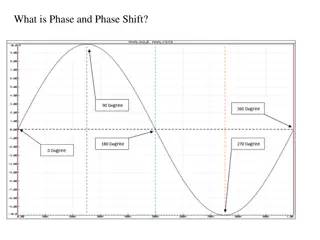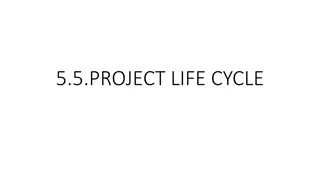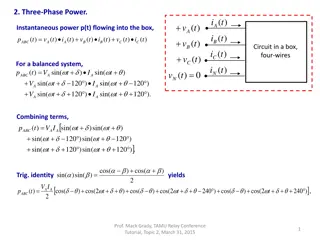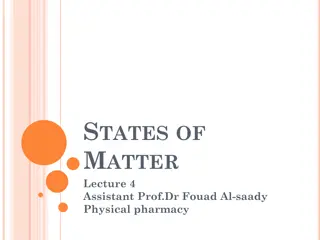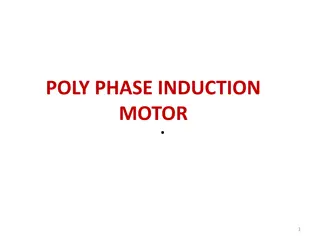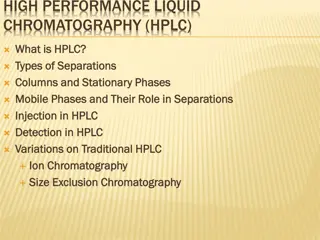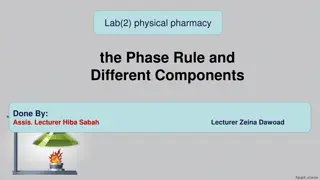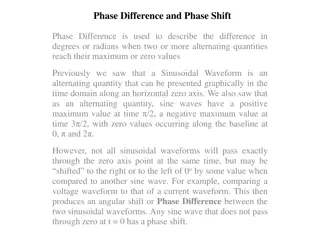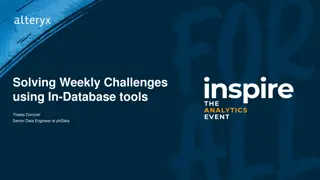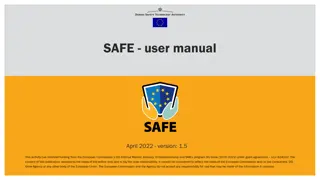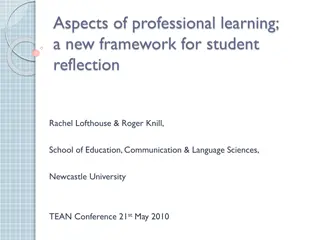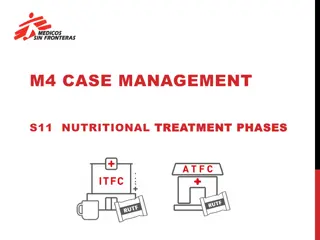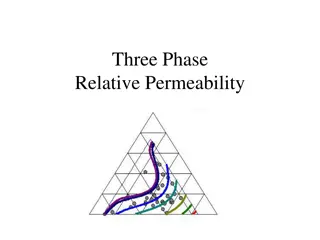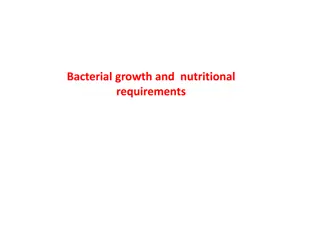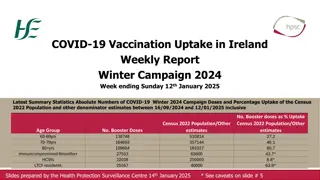
Classroom Observation, Learning Techniques, and Teacher Standards
Explore the focus on lesson structure, safeguarding, modeling, and classroom practices in educational settings. Reflect on observation insights, instructional strategies, and meeting teacher standards through theoretical perspectives.
Uploaded on | 2 Views
Download Presentation

Please find below an Image/Link to download the presentation.
The content on the website is provided AS IS for your information and personal use only. It may not be sold, licensed, or shared on other websites without obtaining consent from the author. If you encounter any issues during the download, it is possible that the publisher has removed the file from their server.
You are allowed to download the files provided on this website for personal or commercial use, subject to the condition that they are used lawfully. All files are the property of their respective owners.
The content on the website is provided AS IS for your information and personal use only. It may not be sold, licensed, or shared on other websites without obtaining consent from the author.
E N D
Presentation Transcript
8 WEEK Observation and classroom practices FOCUS: Observation Reflection Talkthru Drawing on example(s) from your Talkthru 8.1: Focus of observation: Lesson structure observations and prior learning, consider: Outline your understanding of safeguarding How have objectives or learning What are the roles of lesson objectives, and policies in this school, including indicators of harm outcomes been presented? how might these be used in a classroom to and how you would raise any concerns (may have support pupils learning? been addressed by ITE coordinator etc.) How might these support pupils to What is your understanding of modelling, Talkthru 8.2: progress? guides, scaffolds and worked examples in Talk us through a lesson feature that you focussed relation to learning? What do you notice about how on in your observation(s) (steps, models, guides, models, guides, scaffolds or worked Reflect on how new ideas could be scaffolds, worked examples or questions); what did introduced to pupils and how links could be you notice and what inferences did you make examples were used; how might made to prior knowledge? about pupil learning? these support learning? (D9, D11, (D9, D11, D12) D12)
8 WEEK Observation and classroom practices FOCUS: Prompts for discussion in your weekly meeting In the weekly meeting discuss lesson objectives and those aspects you have focused on; this should include what you understand by the terms above (modelling, guides, scaffolds and worked examples). Notes During lesson observations, student teachers should think about how lesson objectives and particular classroom practices support learning. The Core Content Framework suggests that introducing new material in When discussing their observations try and move beyond describing what they observed and getting them to discuss the pedagogical rationale behind what they saw. steps and modelling supports learning, and that guides, scaffolds and worked examples help pupils apply new ideas. Also, questioning has Why do they think the teacher used those, models, examples, scaffolds in the lesson? many roles, including drawing attention to key ideas. During the week, You might want to discuss how they are spending their planning time, and model how you use your PPA time with them. observe expert colleagues and focus on some of these elements. (D9, D11, D12) Further Reading and Resources McGill (2018) Lesson Planning, Impact: Journal of the Chartered College of Teaching. Issue 3. Available online (link).
9 WEEK How pupils learn FOCUS: Observation Reflection Talkthru Your UA1 assignment focused on how pupils learn, drawing on prior research to develop your understanding. Here you are focusing on how those theoretical perspectives can inform your planning and help you interpret classroom behaviours. Drawing on specific examples, reflect on: Focus of observation: Classroom techniques Talkthru 9.1: Some classroom techniques, such as retrieval practice or controlled variation, might be clearly signalled in a lesson. Whereas teachers attention to other aspects, such as reducing split attention affects or drawing on dual coding, are likely to be less visible (unless you are in the fortunate position to be able to discuss this with the teacher). You need to meet Part 2 of the Teachers Standards (Personal and Professional Conduct PPC) throughout your course. Talk us through how you have met that standard in your first couple of weeks with us and how you are going to maintain that standard. (B2) How you have used particular perspective to inform you planning of particular activities or sequences of activities So: What complexities you have encountered in translating theory into practice. Talkthru 9.2: What type of approaches do you notice that could be associated with an aspect of cognitive science? Talk us through a specific example of how you can/have drawn on the key tenets of cognitive science (or anther theoretical perspective) to inform your lesson planning. (D1,D2,D3) Being careful to distinguish between classroom behaviours you noticed and your interpretation of those behaviours, articulate how you have used particular theoretical perspective to make inferences about learning in lesson(s) that you have observed. What other insights does a cognitive science lens offer in relation to pupil learning during your observation? (D1, D2, D3, D4, D5, D6)
9 WEEK How pupils learn FOCUS: Prompts for discussion in your weekly meeting Discuss a lesson that they will be teaching next week get them to explain what they are doing and its link to how pupils learn Notes Reflect on how pupils learn, drawing on theories of learning and pedagogy to inform planning. Also consider which perspective is being drawn on to make inferences about learning based on the observations in classrooms. The Core Content Framework advocates a range of pedagogical approaches related to a model of memory (working/long term) and the Discuss a learning activity that they have observed that week. What made it an effective learning activity? What other ways could it have been done. associated cognitive load. This includes strategies, such as retrieval practice and spacing, to support long-term recall and others that avoid overloading working memory , such as reducing split attention affects. During this week, engage with department approaches to Discuss an activity that you have done this week. Explain your reasons for choosing this activity. cognitive science, or other theoretical perspectives, and discuss how to incorporate approaches appropriate to context into planning. (D1, D2, D3, D4, D5, D6) Further Reading and Resources Australian Education Research Organisation, How students learn best An overview of the learning process and the most effective teaching practices, (September 2023) Available Here
10 Assessment for learning/Formative Assessment WEEK FOCUS: Observation Reflection Talkthru You have explored Assessment for Learning and have read some of the key texts. Here you are focussing on the application of assessment to planning and decision making, alongside how to provide high-quality feedback to pupils. Reflect on: Talkthru 10.1: Focus of observation: AfL/ Formative assessment Talk us through the strategies you noticed teachers used to check for understanding during the lesson, and what you took from this in terms of how you might plan for assessment. (F4) What strategies do you notice the teacher use to check for understanding during the lesson? How assessments can be linked to teacher s decision making, and the complexities involved. What role(s) do you think questioning played in the lesson? What are key features of high-quality feedback? Drawing on example(s) from your observation(s)/teaching, consider some or all of: (F4) Evidence of how written and/or verbal feedback has contributed to pupil learning (F5) How opportunities for pupils to respond productively to feedback can be generated. What different ways of providing feedback (e.g., verbal, written) do you notice and what types of opportunities did/might the pupils have to respond. (F2, F4, F5) Over time, how pupil monitoring and self- regulation could be facilitated (F5)
Assessment for learning/Formative Assessment 10 WEEK FOCUS: Prompts for discussion in your weekly meeting How do you know that students are making progress in your subject? Notes During lesson observations, student teachers should consider how assessment opportunities and feedback can be planned and used. The Core Content Framework suggests that assessment should inform teachers decision making, and that feedback can be written or How do you decide on what questions to ask students in a lesson? verbal, as long as pupils can act on that feedback in a productive manner. Also, questioning has many roles, including the assessment of prior knowledge and understanding. During this How do you decide on what method of feedback to use with the students? time, reflect on your lesson observation(s) of expert colleagues and your own teaching; consider what decisions might have been better informed through the planned use of assessment and what high-quality feedback looks like; discuss and analyse with your co-tutor in your weekly meeting. Co-tutors, make pedagogical decisions more visible; how do you choose questions/ decide on a method of feedback, for example? (F2, F4, F5) Further Reading and Resources Scott, I.M., 2020. Beyond driving : The relationship between assessment, performance and learning. Medical education, 54(1), pp.54-59. https://pubmed.ncbi.nlm.nih.gov/31452222/
11 WEEK Behaviour and Relationships FOCUS: Observation Reflection Talkthru Talkthru 11.1: Consider: Focus: Routines and Motivation Talk us through an example of when you drew on the school policies to support behaviour management. How successful do you think your actions were and what might you do in future to lessen the requirement for direct intervention? (C1- C6) What does Bennett (2019) mean by proactive behaviour management and routines? To what extent have you been able to implement proactive and reactive behaviour management strategies so far in this placement? What routines do you notice the teacher has established to maximise time for learning? (Look hard, as if well- established there may be little or no overt teacher action). How are routines reinforced? Why is it important to know a school s sanction and reward systems before you start teaching? What rewards, consequences and sanctions do you consistently use to support positive behaviour? Motivation: Analyse interactions through an intrinsic/extrinsic lens and reflect on the possible implications. (C7) What behaviour management targets do you see as a priority for the remaining weeks of this placement, and how might you address these, and what are the key takeaways for Phase B? (C1-C9)
11 WEEK Behaviour and Relationships FOCUS: Prompts for discussion in your weekly meeting How to maintain a positive learning environment? Notes Reflect on behaviour management, rules and routines. Student teachers should consider progress in establishing proactive and reactive behaviour management strategies, and what the next steps will be for the second half of the practicum. The Core Content Framework suggests that teachers have the ability to affect and improve the wellbeing, motivation and behaviour of their pupils, and by establishing and reinforcing routines, including through positive reinforcement, teachers can help create an effective learning environment. (C1-C9) What impact does a negative learning environment have on learning? What is low-level disruption and what impact does it have on learning, routines and classroom expectations? In the weekly meeting, discuss the importance of having a positive learning environment and how this impacts on learning and pupil outcomes. In particular, discuss how to improve/retain consistency whilst practicing other techniques such as low-level intervention, de-escalation & restorative practices Further Reading and Resources Bennett, T. (2019) Beginning teacher s behaviour toolkit. EEF guidance report on improving behaviour. https://educationendowmentfoundation.org.uk/education-evidence/guidance-reports/behaviour
12 WEEK Connecting planning and Assessment FOCUS: Observation Reflection Talkthru Teachers are likely to be continually assessing throughout a lesson, from planned key questions to intuitive interpretation of body language, some of which you are unlikely to notice. The same is true of a teacher s response; they may have changed the next question or introduced a task in a different way based on their assessment of pupil understanding; these shifts are unlikely to be obvious. So: In a previous week you considered lesson structure Talkthru 12.1 and you reflected on assessment for learning, both Talk us through an example of how summative data has/could inform your teaching (F2) from a perspective of observing others. In this second half of your placement, now consider planning and assessment in relation to your lessons, as well as those of others. Consider: NB this supports Fundamental Mathematics (required for QTS) on CARD A. How has your planning developed? (D9) What types of in-lesson assessments have you Talkthru 12.2 planned, and how have you used information generated e.g., have you adapted that lesson, Observe as closely as you can the evidence available regarding pupil understanding (details about what is said, written, done is useful here). At intervals, write down your interpretation of pupil understanding and what options you could consider taking (there are no right or wrong answers the idea is to practise in-lesson decision making ). (F4) Talk us through an example of when you have planned in lesson assessment and have responded based on information generated. (F4) followed up in subsequent lessons? Have you used summative information, if so, how? (F2) How have you provided feedback to students that is effective but also time efficient? (F4)
12 WEEK Connecting planning and Assessment FOCUS: Prompts for discussion in your weekly meeting In the weekly meeting: Notes Reflect on planning and assessment, considering how to integrate these elements of teaching. The Core Content Framework suggests that you can avoid common assessment pitfalls by planning formative assessment tasks linked to lesson objectives and think ahead about what would indicate understanding and that you can draw conclusions about what pupils have learned by looking at patterns of performance over a number of assessments (D9, F4) discuss and analyse your planning and assessment how the department uses summative assessments and their use in relation to classes taught. Also, please discuss the effectiveness of the student teacher s planning in relation to linking learning objects with assessment opportunities, and action to take to have a positive impact on learning opportunities for pupils. How are formative assessments linked to your departments summative assessments? Further Reading and Resources Revisit or extend prior reading as appropriate. EEF guidance report on feedback (and their 6 recommendations). https://educationendowmentfoundation.org.uk/education-evidence/guidance-reports/feedback
13 WEEK Adaptive Teaching FOCUS: Observation Reflection Talkthru What types of barriers exist that make it more difficult for some pupils to access the curriculum that others Talkthru 13.1 Talk us through what you have done to find out about, and understand, what different types of support some students in your classes might need. How have you sought to adapt lessons accordingly. (D12,D17) Focus of observation: High Expectations If possible, and if appropriate, find out what different levels and type of support might be needed. What role can teachers expectations play in limiting some pupils access to the full curriculum How has the teacher adapted the lesson, whilst maintaining high expectations for all, so that all pupils have the opportunity to engage with the learning intentions? What additional or adapted support have you provided for pupils, and how did you make those decisions. (D17)
13 WEEK Adaptive Teaching FOCUS: Prompts for discussion in your weekly meeting Discuss a lesson that you will be teaching this week. What different levels of support will students need? How do you know what are the different levels of support they will need? Notes Next week, reflect on adapted planning and teaching strategies, such as questioning and dialogue and consider whether planning supports all the pupils in each class. If there are some gaps, who can you talk to and what can you do to ensure your teaching is more inclusive? The Core Content Framework states that pupils are likely to learn at different rates, have different levels of prior knowledge, require different levels and types of support, and will benefit from teachers who seek to understand these differences at the start of a topic or lesson (5.1-2). For some pupils, such as those with SEND, there may be specific school information that you could draw on, but for other pupils the situation might be less clear. For example, social exclusion by peers can make it difficult for pupils to engage in lessons. In your weekly meeting review how you have been able to adapt your lessons. In your observation what strategies did you see that show how the teacher adapted their teaching for different levels of types and support? How can student teachers get support in making their teaching more inclusive? During the week share some of the strategies used to understand these differences and the support provided for students who make progress at different rates. Please arrange a weekly observation that would allow the student teacher to consider how a lesson might be adapted to provide different levels and types of support. (D17 ) You may discuss specific students they will be teaching and what needs they might have. Further Reading and Resources EEF guidance report on special education needs in mainstream schools (and their five recommendations) https://educationendowmentfoundation.org.uk/education-evidence/guidance-reports/send
14 WEEK Curriculum FOCUS: Observation Reflection Talkthru The role of subject knowledge, pedagogical content knowledge and curriculum knowledge is widely discussed (with other terminology and categorisations used). By drawing on particular examples, consider: Talkthru 14.1 Focus of observation: good examples and models. Talk us through a good example or model that you have used and why it was a powerful one to use. (E3) Gaining access to key concepts, ideas and principles of a subject is often far from straight Have there been occasions when your good subject knowledge did not appear to translate into sound pedagogical knowledge what happened and why? (E2) forward, with examples and models offering a Talkthru 14.2 way in to more complex, interconnected or Talk us through how we might check that our curriculum provision, examples, models etc. provide a fair representation of all in society (E8) abstract notions. So: It is possible to fall into the trap of planning activities for pupils to complete without thinking through how the activity relates to essential concepts, knowledge, skills and principles of the subject. Review a few recent classroom activities and consider how well articulated these key ideas are in your planning. Do you have evidence of pupil engagement with the tasks led to them thinking hard about those key ideas? (E4) What examples and models were used in the lesson? How were these related to the lesson objective/key ideas? Did the examples/models have any Supporting pupils to build increasing complex coherent mental model of our subject requires time and careful sequencing. Do you think your sequencing of lessons provided this support? (E4) limitations? (E4)
14 WEEK Curriculum FOCUS: Prompts for discussion in your weekly meeting What are the key ideas in your subjects curriculum? Notes Next week, reflect on subject and curriculum knowledge, considering how to accumulate and refine powerful analogies, illustrations, examples, explanations Curriculum purposes why are the topics contained in your subjects curriculum? What are the outcomes and objects for your subjects curriculum and how does it link to the wider school curriculum? and demonstrations for your subject. The Core Content Framework suggests that a carefully sequenced and coherent curriculum requires the identification of key concepts, knowledge, skills and principles of the subject couple with ways to Who decides the curriculum in your subject? ensure that pupils thinking is focussed on these key ideas. During this week, How can teachers find powerful analogies, illustrations, examples, explanations and demonstrations for your subject? engage with the department s approaches to curriculum design to consider how you can develop approaches that help pupils access these key ideas, whilst also considering common misconceptions and how this might be resolved. What is your departments approach to curriculum development. (E1, E2, E3) Further Reading and Resources Mark Priestley, Curriculum: Concepts and Approaches, Impact, (6), May 2019. Link here This is taken from a longer article found here Priestley, M. and Xenofontos, C. (2021) Curriculum making: Key concepts and practices , in Biddulph, J. and Flutter, J. (eds) Inspiring Primary Curriculum Design. London: Routledge. Available here
16 WEEK Reflective ability and teaching practice FOCUS: Observation Reflection Talkthru Your choice of focused observation based on targets. Talkthru 16.1 review process. Talk us through your key strengths, where you have made significant progress and what areas need further development. (B1, B2) Your weekly meetings will allow you to reflect on your first school practicum. The Core Content Framework argues that reflective practice supported by feedback from and observation of experienced colleagues, professional debate, and learning from educational research, is likely to support improvement . Draft out responses to the following questions: 1. How have observations, professional debates and research informed your reflective practice? 2. What evidence do you have that your reflective practice has supported improvement? 3. What do you see as the opportunities or challenges inherent in attempting to engage in reflective practice?
16 WEEK FOCUS: Prompts for discussion in your weekly meeting How do you use research in your teaching? Notes Supporting reflective practice This week and next week, in your the final meetings, consider the role of reflection in a learning journey. Review the Talkthrus , and the wider curriculum trajectory, to demonstrate understanding of learning and developing practice. The Core Content Framework argues that reflective practice supported by feedback from and observation of experienced colleagues, professional debate, and learning from educational research, is likely to support improvement. What s the difference between reviewing a lesson and reflecting on a lesson? What is the difference between reflective practice and Also consider why it is important to draw on educational research during teaching practice. This is the end of the Setting the Foundation practicum so ensure you understand as fully as possible the feedback from your co-tutor as this will be the starting point for the next school practicum. (B1, B2) Further Reading and Resources Ward, J.R. and McCotter, S.S. (2004) Reflection as a visible outcome for preservice teachers , Teaching and Teacher Education, 20(3), pp. 243 257. doi:10.1016/j.tate.2004.02.004. Azimi, E., Kuusisto, E., Tirri, K., & Hatami, J. (2019). How do student teachers reflect on their practice through practicum courses? A case study from Iran. Journal of Education for Teaching, 45(3), 277 289. https://doi.org/10.1080/09589236.2019.1599511

